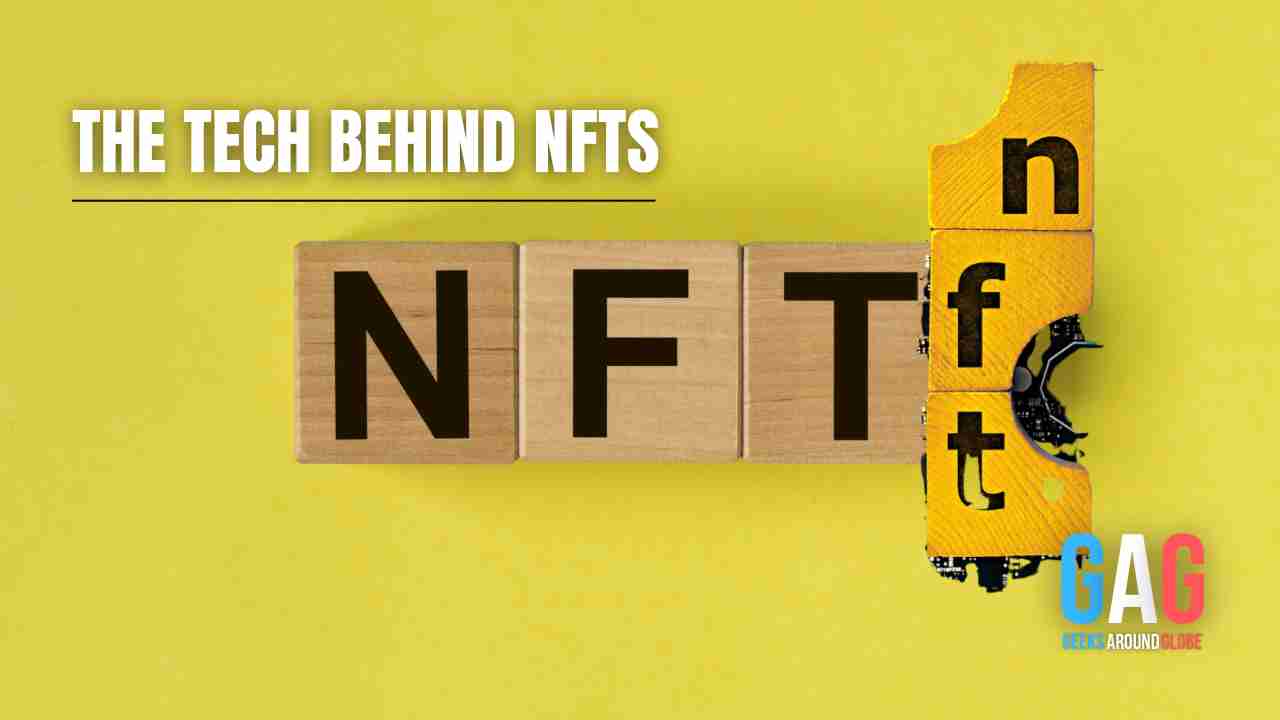NFTs (non-fungible tokens) are blockchain-based digital currencies. The concept of exclusivity underpins the worth of NFTs. NFT collectors can possess one-of-a-kind digital products such as music, art or sports highlights that can be purchased and sold on digital marketplaces. Although NFTs have certain qualities that are the same as traditional physical artefacts, they have opened up new economic opportunities.
What are NFTs?
So, contrary to cryptocurrencies, NFTs are not exchangeable(fungible), thus they get their name from the idea of fungibility.
Like Bitcoin, the data of an NFT is kept on a blockchain, an unchangeable and decentralized online database used to keep track of a peer-to-peer network. NFTs are fully individual and cannot be modified or erased. As an asset type, the innovation underpinning NFTs provides a highly significant feature: authenticity verification.
Each NFT has information that distinguishes it from other NFTs, and this data cannot be duplicated. As a result, copying NFTs is pointless since the blockchain can track each NFT back to its original source.
The ability to track an NFT back to its originator eliminates the need for third-party authentication, improving efficiency and lowering total costs.
What Are They Built On?
A large percentage of NFTs are created with Ethereum, an open-source and decentralized platform that leverages blockchain technology to develop and execute decentralized digital apps (DApps). This allows smart contracts to be created, – says Slava Vaniukov, expert and CEO of Softermii.
Token standards, which are a type of template, allow developers to create NFTs while ensuring that they are interoperable on various platforms, exchanges, and wallet services currently available in the blockchain environment.
Other platforms, including Neo and Tron, have developed their own NFT token specifications, allowing developers to create and operate NFTs on their own blockchains.
Adopting NFTs
NFTs are being embraced in a variety of industries, but the entertainment industry is the most prominent adopter. NBA Top Shot, an NFT marketplace for highlight reels for the NBA, was established in 2019 by the NBA in conjunction with Dapper Labs, a blockchain-based firm.
Individuals may purchase and resell NBA highlight reels, also known as moments, on NBA Top Shot. Top Shot has made over $300 million in sales since its start, with a single short clip of a LeBron James slam fetching over $200,000.
The NBA’s daring action might serve as a model for other pro sports. Similar marketplaces are anticipated to emerge for the NFL, Baseball, and other sports. Other entertainment firms, such as Disney, may embrace similar markets since it has a lot of intellectual property that it could exploit on these platforms.
How It Affects Artists
NFTs are also popular amongst artists. Without the use of a gallery or auction house, NFTs allow artists to auction their creations in a form that is digitally verifiable directly to buyers all over the world. By removing these middlemen, artists can keep a bigger portion of the earnings from sales. Claire Boucher, also known as “Grimes,” a singer and artist, managed to sell her range of digital works for $5.8 million in NFTs on Nifty Gateway, a virtual marketplace for NFTs.
Mike Winkelmann, also known as Beeple, sold his NFT digital art composition “Everydays: The First 5000 Days” for more than $69 million at a bidding market recently. Even though this sale was handled via a Christie’s auction, a typical middleman, Christie’s involvement might represent a turning point in the legitimacy of NFTs.
Another reason why artists are attracted to NFTs is the effect they have on royalties. The majority of the time, artists do not get royalties on potential purchases of their work.
NFTs, on the other hand, may be designed to pay the artist a specified royalty whenever their digital artwork is bought by a new buyer. Mike Winkelmann, for example, will be paid a 10% fee each time his NFT is sold after this initial transaction.
Conclusion
With all this overwhelming evidence, it is safe to say that NFTs are the cryptocurrency of the future, with more and more digital platforms using them to transact. Who knows? We may see another enormous income-generating industry, online gambling, and companies like DraftKings allow players to use NFTs for wagering. Some sites already accept bitcoin, so this is merely the next step in future innovation.
Author Bio: Vinod Gill is a writer who specializes in writing content on Sports and Gaming subjects. He is a Digital Marketing Consultant, Blogger, and Co-Founder of Ecompany.
Image: Pixabay







